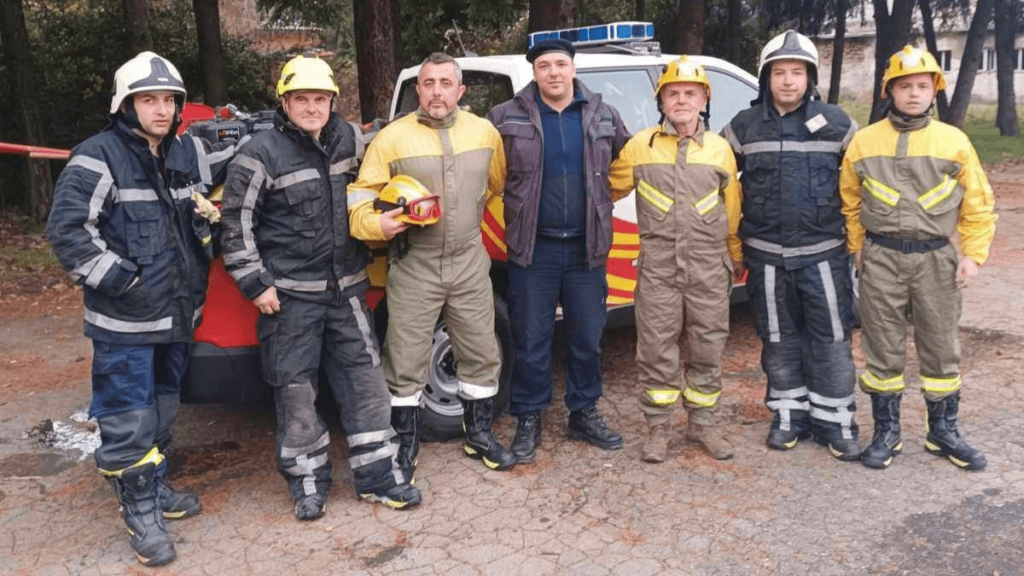How important cooperation is among rangers: Gjuro Jovcheski and Aleksandar Gugoski can tell you a thing or two about that. While the Rangers in the Republic of North Macedonia largely lack support, they organise themselves. The final, logical step: their own national ranger association and thus official access to the European network.
Here Gjuro, head ranger in Galičica National Park, explains why this is so important for training, day-to-day work and much more, while Aleksander, driving force behind the foundation, reports on how the association takes shape.
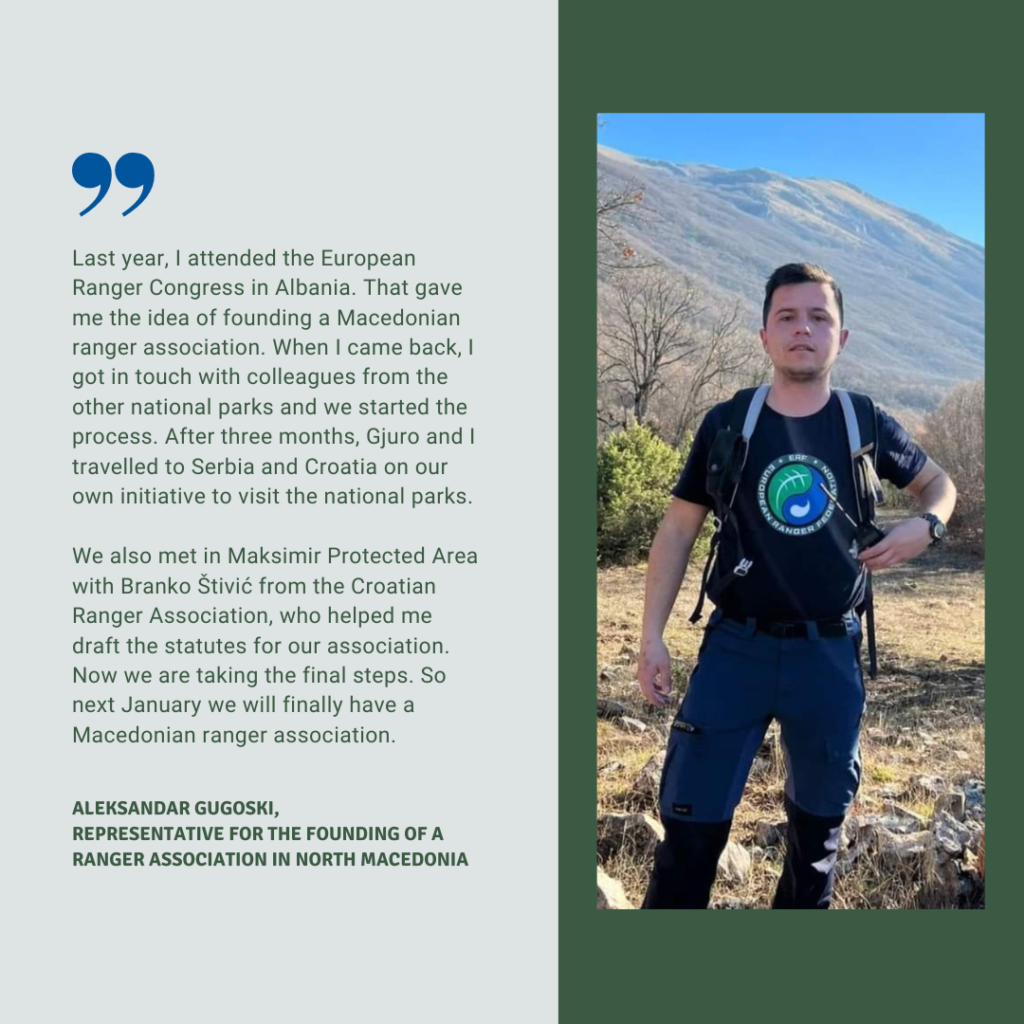
What issues do the rangers in North Macedonia have to deal with?
Gjuro: One topic is the filling of ranger positions. Unfortunately, young, talented rangers like Aleksandar are not given any opportunities, so he no longer works as a ranger in our national park. The positions are mostly given to older party soldiers. Rangers in the protected areas of our country all have to deal with the same problems: bureaucracy, corruption, no talent-oriented selection process for rangers, insufficient equipment, no recognition of the ranger profession.
Neither do we have a precise definition of our
profession nor a regulated training programme
We have neither a precise definition of our profession nor a regulated training programme. And we are understaffed: to cover the 24,000 hectares of our national park, we need 4 to 5 more rangers. On a positive note, we have changed the national park’s financial plan for the next period. This means that no more trees will be cut down. Instead, we will be funded by “eco-tickets” paid by tourists visiting the national park and supported by the Prespa Ohrid Nature Trust (PONT) in paying staff and maintaining our equipment. This makes us the first protected area to move away from tree cutting in its working policies and methods. We hope that the other protected areas will follow suit, but this will take time in a post-communist country like ours.
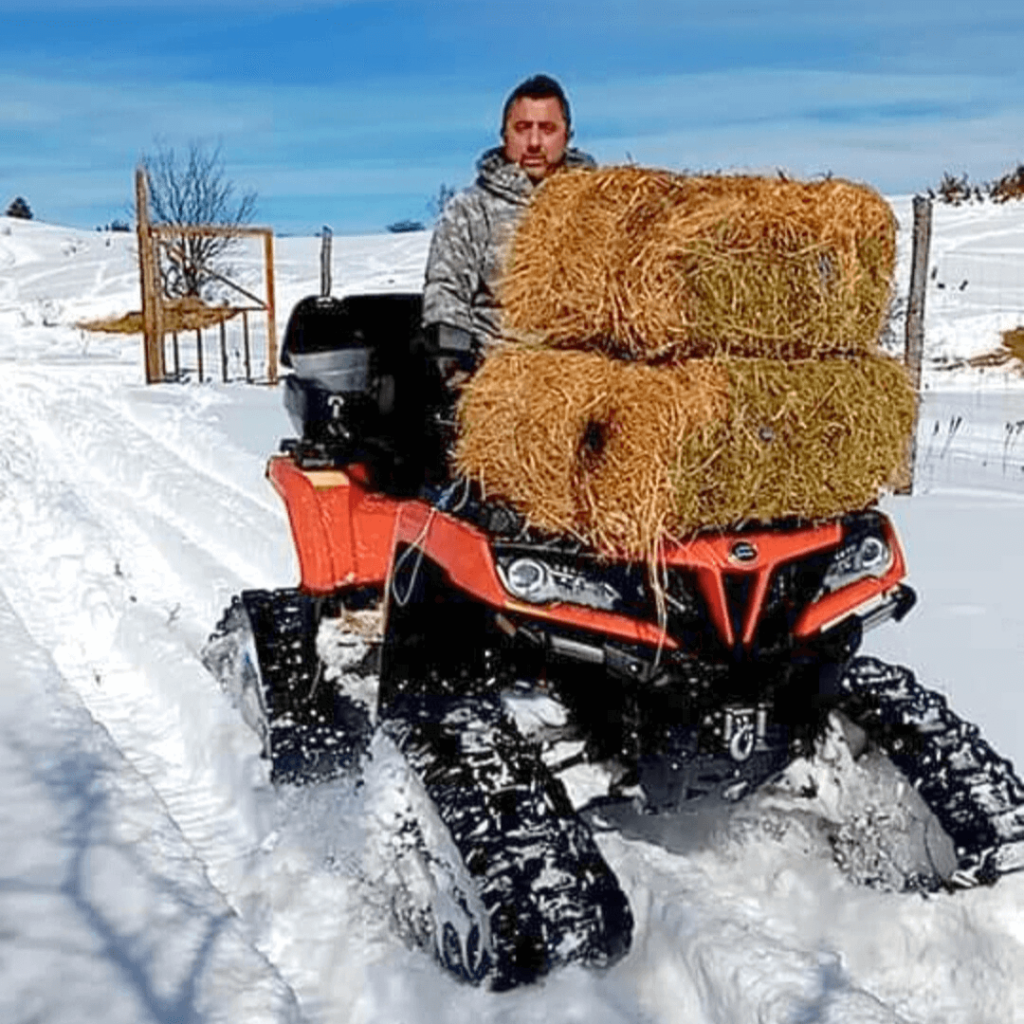
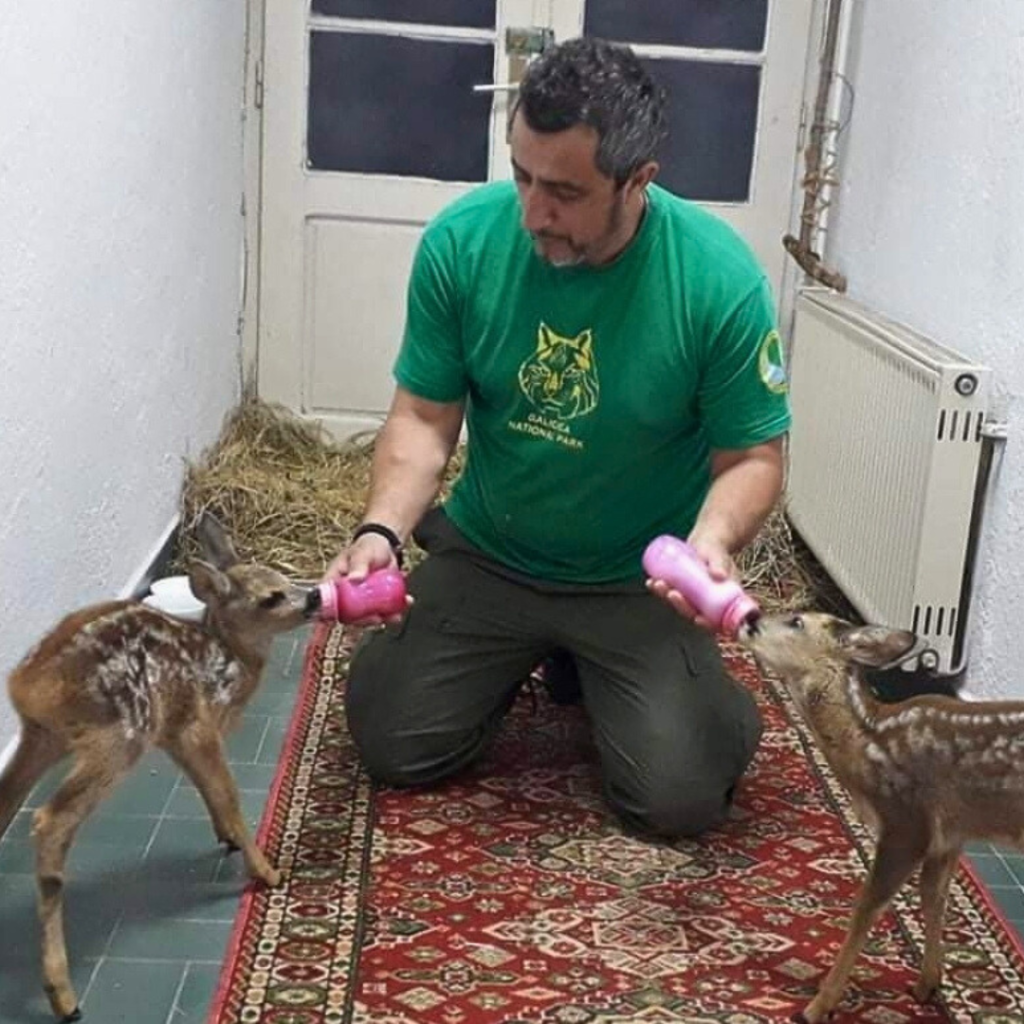
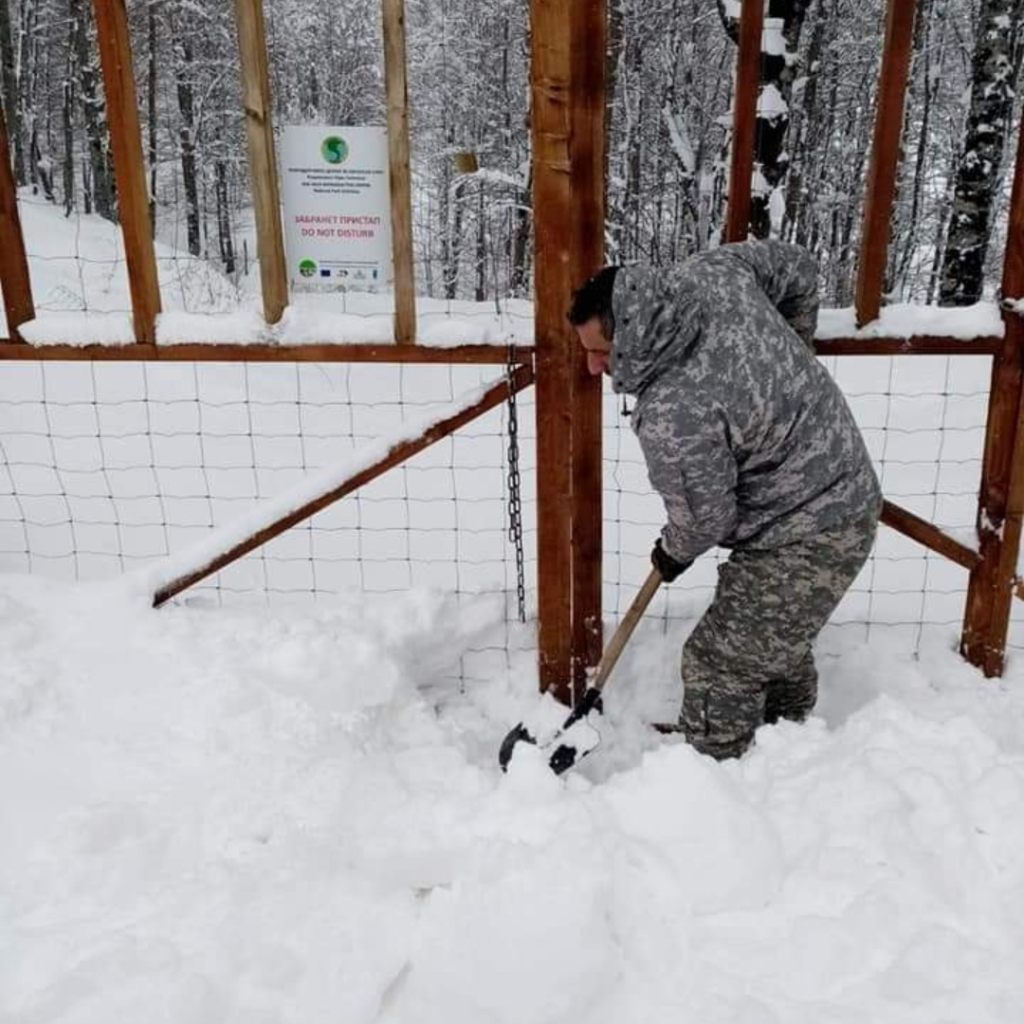
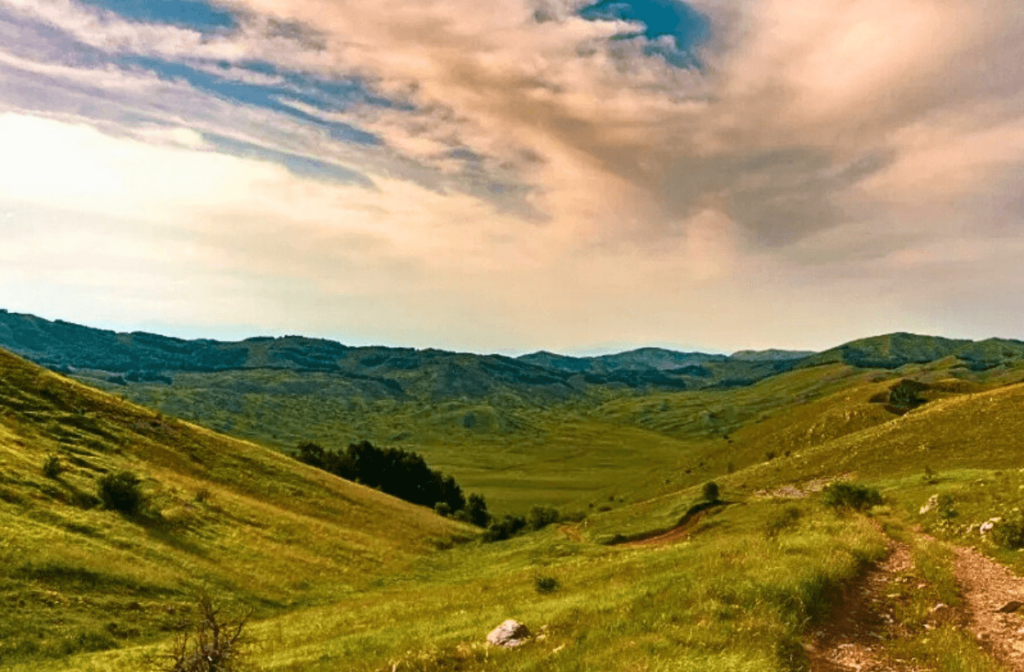
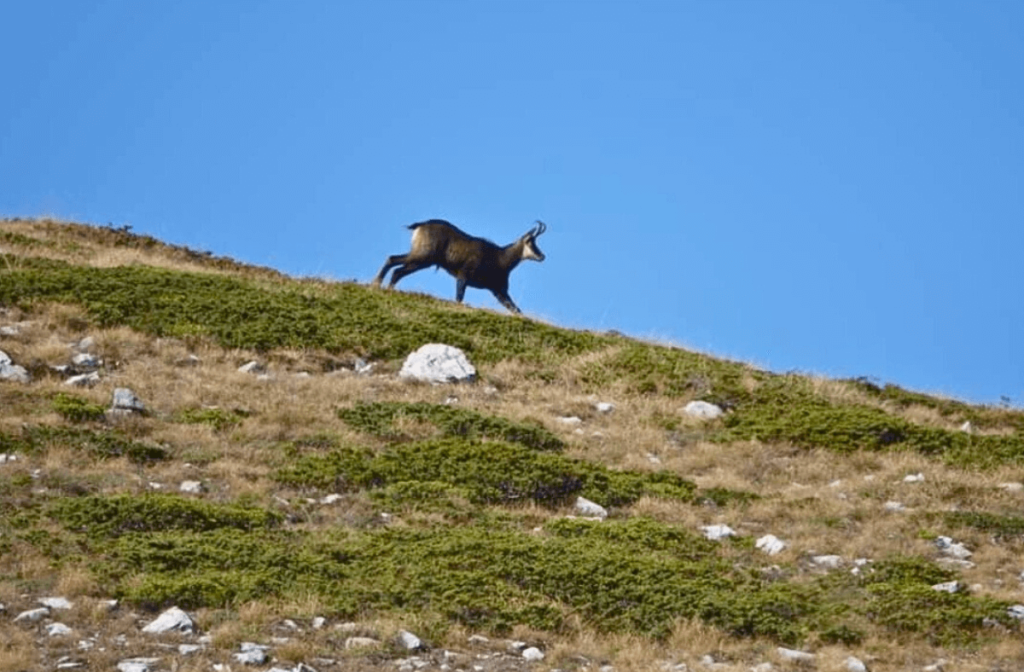
What tasks do you perform and how do you organise yourselves?
We organise our work ourselves, including tasks such as training young rangers. As the head of the rangers in our national park, I try to cooperate with the other rangers in Macedonia for training and ranger tasks. An important task is communication and co-operation with the local population. There are 5,500 inhabitants living in the area of our national park. 17 per cent of the area is privately owned, the rest belongs to the state. These local people are the ears and eyes of the national park, which is why it is important to involve them in nature conservation. Another task is visitor care and management, especially during the tourist season from April to October. In the Ohrid area, a main part of our national park, we have almost 300,000 visitors per year. Located between the two lakes Prespa and Ohrid, there are offers for sustainable tourism such as ethno-villages, typical regional restaurants, hiking trails that lead up to 2,250 metres, the highest point of the park. The third and most important task, however, is to protect nature from environmental crimes.
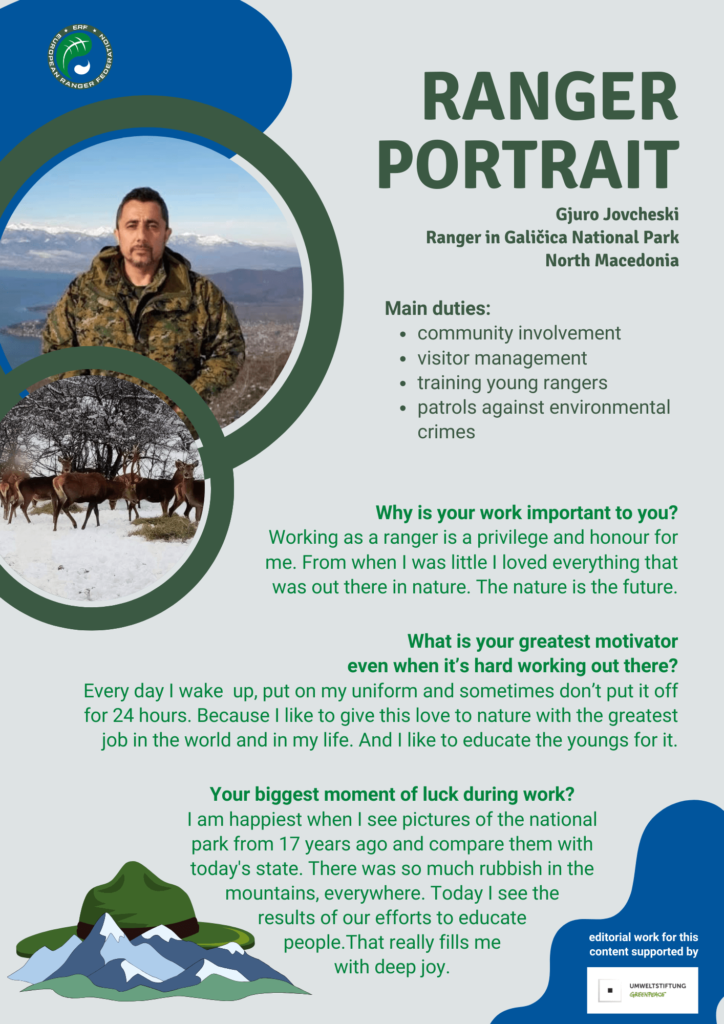
How is the nature you are responsible for?
The nature of our national park is very interesting: we have 1,600 different plant species, 12 of which are endemic, occurring nowhere else in the world. We have 176 different tree species, which make up almost 70 per cent of the tree population in Macedonia. We also have 1600 species of butterflies, 170 of which are day butterflies, the others are nocturnal butterflies. Even scientists from Poland and Finland visit us and discover new species every year. Another 300 bird species contribute to the great biodiversity, including many that live in the lake regions. The birds that live on our only island, such as pelicans, cormorants and an endemic bird called Mergus merganser, are of particular interest to ornithologists. Of the 57 species of mammals, one of the rarest is the lynx, which we have had on our cameras in the last two years. Two specimens live in our national park, which incidentally has the lynx as its symbol. We also have a population of 150 European deer.
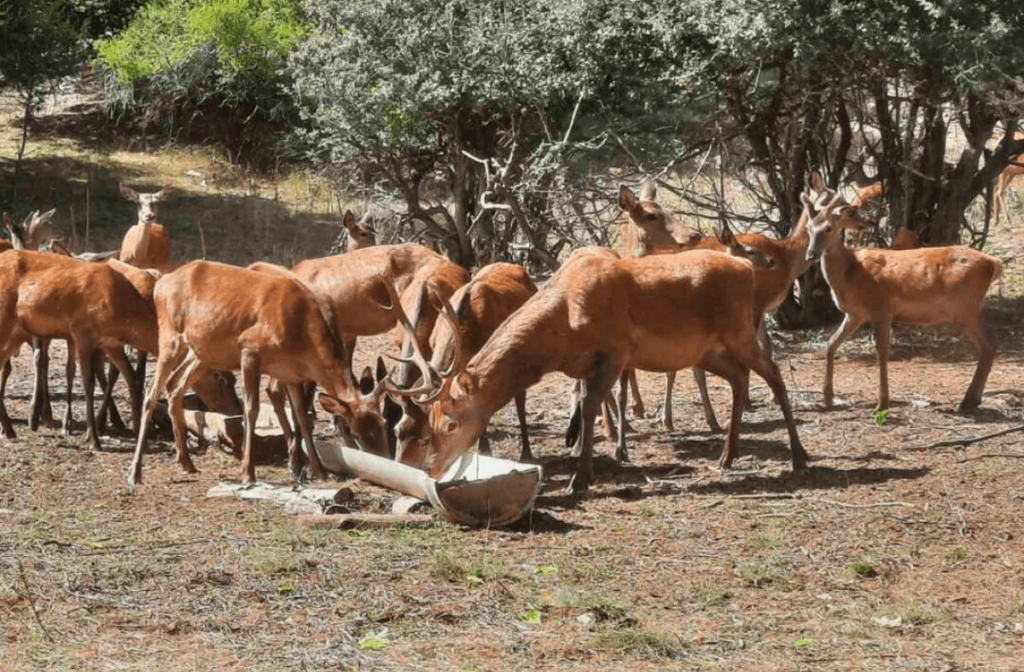
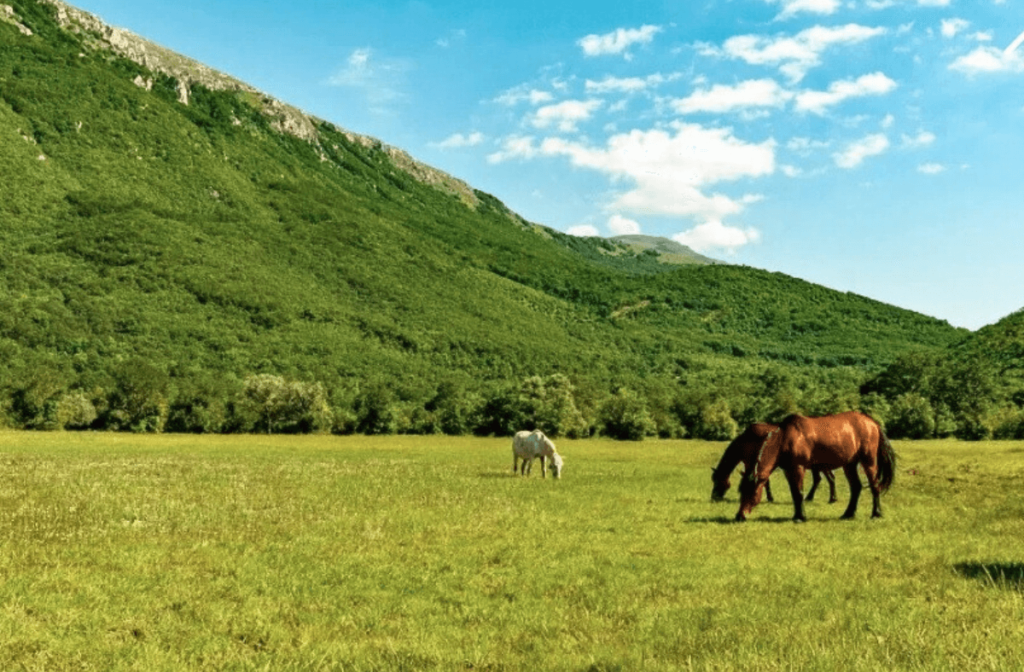
How does the training work for rangers?
I try to pass on my knowledge. But as we don’t have any official training programmes, let alone facilities, we try to network with colleagues from the Balkan region, visit other national parks and gain experience and knowledge from them – all at our own expense. Our aim in establishing a Macedonian ranger association is therefore to become a member of the European Ranger Federation and thus participate in the exchange of knowledge and the training courses on offer, especially for young rangers. Because here in Macedonia, the conservation methods in the other protected areas are still quite old.
How is your profession recognised by the public?
Every day we try to turn the people who live in the national park into friends of nature. Through the tourists they see alternative income opportunities, so the problems with illegal logging are not too big. The inhabitants can run businesses, such as offering accommodation, selling local products and the like. Fortunately, we don’t have problems with mass tourism yet, so we don’t have to deal so much with rubbish, disturbance of flora and fauna and other offences. But of course the pressure may increase in the future due to rising visitor numbers.
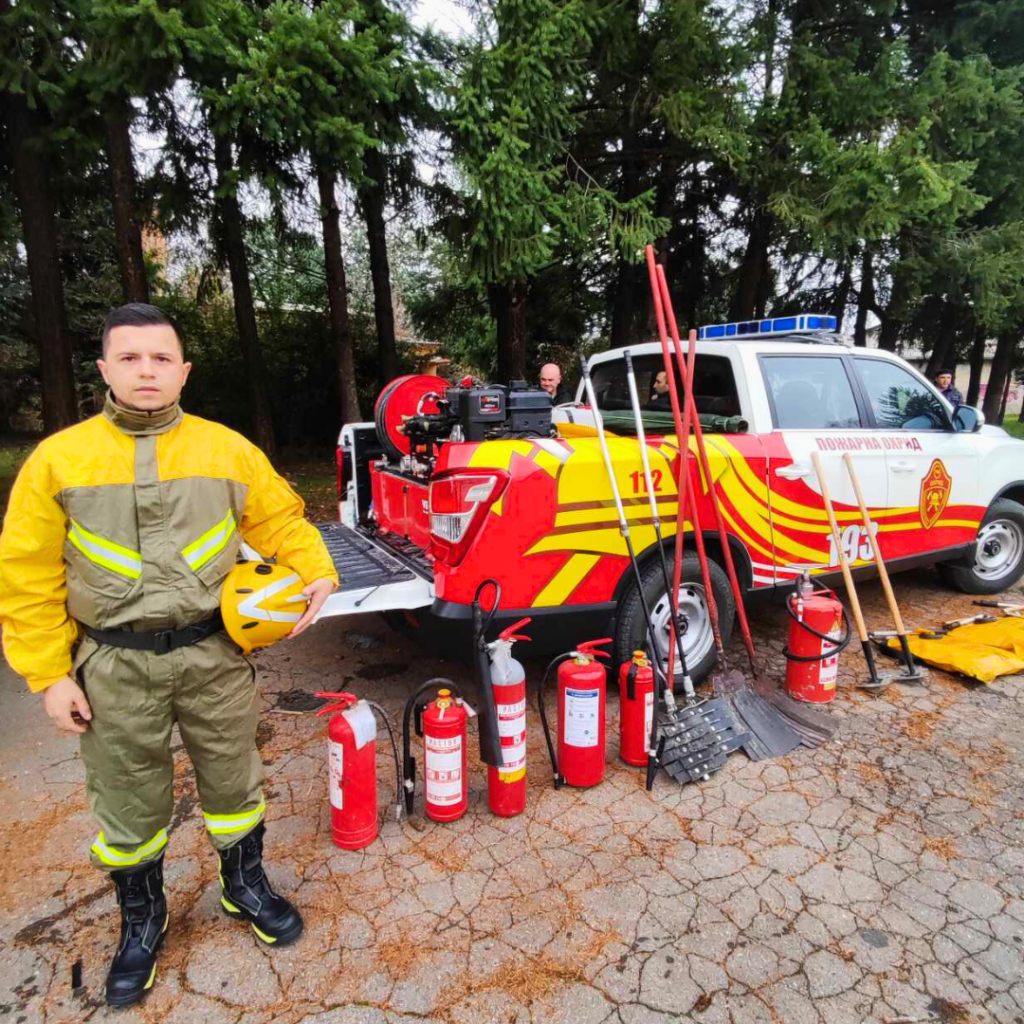
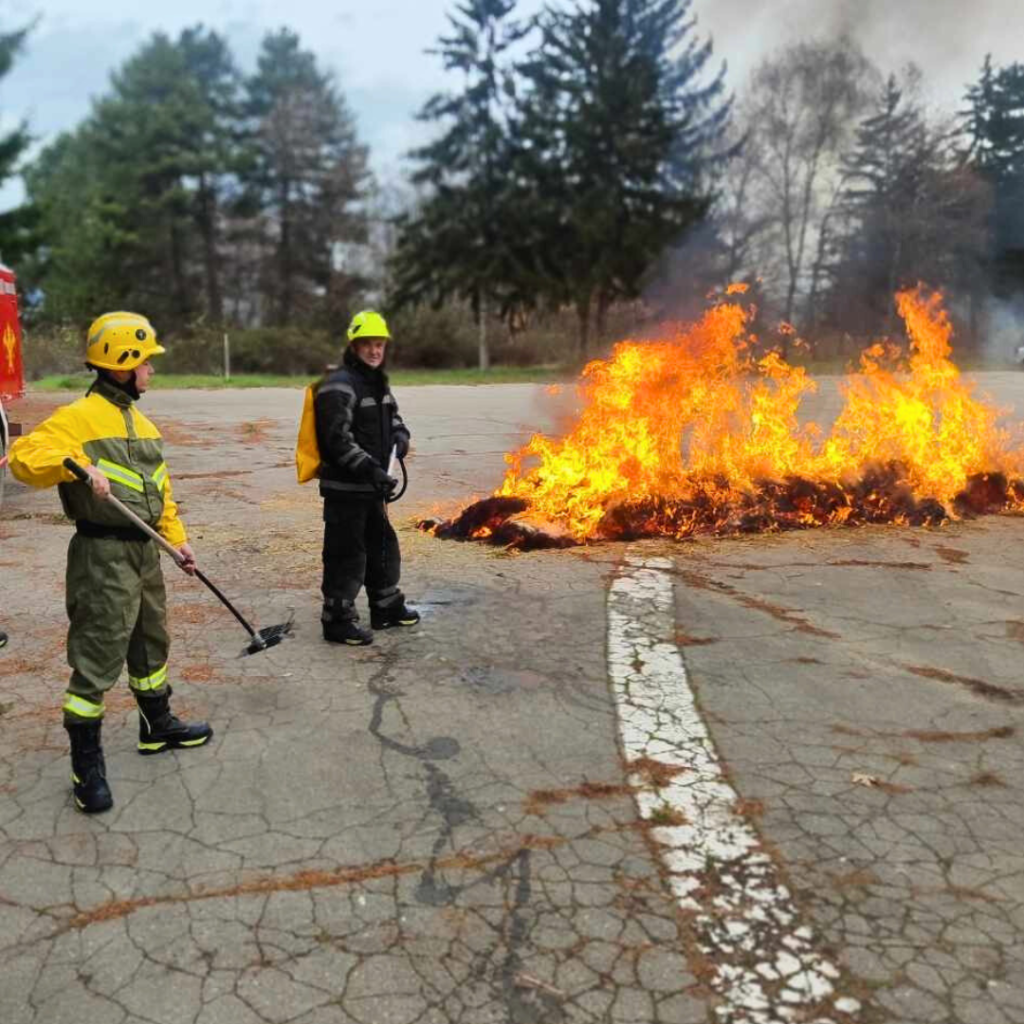
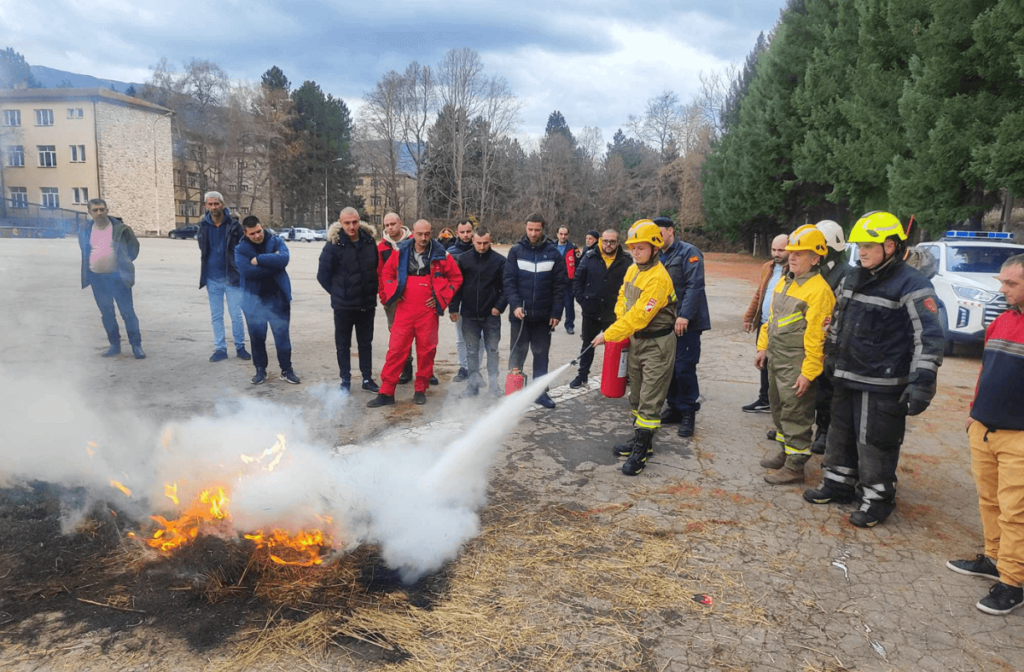
You talked about founding a Macedonian ranger association. How are you progressing and what support are you receiving?
We are on track and confident that we will be able to finalise the establishment in January, thanks in large part to Aleksandar’s efforts with my support. But with the exception of Prespa and Pelister National Parks, the protected area administrators did not support the process and, for example, did not allow their rangers to travel to national meetings on the subject. On the other hand, Aleksandar and I were invited by the youngest national park in our country, Šar Planina, to train the rangers. This was a great honour for us, and we gave advice on how to employ people from the villages in the region, because you need staff who live locally.
A ranger association will make exchange and support among rangers easier. So far, three
protected areas support the founding, but all other rangers surely will join once it’s established
A ranger association could make such an exchange even easier. So to start with, we have three protected areas that will form the Macedonian ranger organisation. And I am sure that all the other rangers will join the organisation as soon as it is established. The firefighters’ association will also join us, because they have similar tasks to the rangers. In the 17 years I’ve worked here, I’ve had 63 fires in open country, so we are also firemen and work with professional firefighters.
© all photos by Aleksandar Gugoski
editorial work for this
content is supported by


